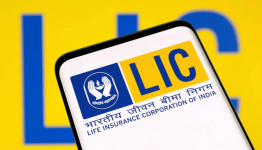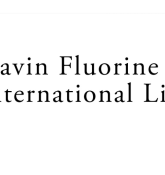Indian markets are expected to open positive today as GIFT Nifty is showing positive trend at the moment.
News in Focus


Kotak Institutional Equities has reiterated a Buy call on LIC, citing a strong performance in Q4FY25, sharp improvements in margins, and embedded value growth.

Prabhudas Lilladher has reiterated a BUY call on Aurobindo Pharma with a revised target price of Rs 1,440, underpinned by robust growth in U.S.

The digital asset market in India is experiencing expansion and rapid growth.

Punjab Kings have finally cracked the code. For the first time in over a decade, the franchise has made it to the IPL playoffs, an achievement that has reignited a long-simmering ambition.

Mirae Asset Sharekhan has reaffirmed its 'Buy' rating on ITC Ltd, maintaining a price target of Rs 522.
Main Regional Stories

Indian markets are expected to open flat but we can expect stock specific action in today's trading session. Markets are currently looking positive but investors are also cautious and main trend depends on the sentiment in the global markets.

Indian markets are expected to open flat in today's session as GIFT Nifty was trading almost flat during early trades.

Every Indian Premier League season brings its own whirlwind of expectations and cheers.

Modern online casinos are actively developing a section with live games so that players can experience the excitement of being at the table in one of the largest casinos in the world.
TopNews Arab Emirates
- UAE’s Sharaf Group Announces Rs 5,000 Crore Investment in Kerala
- Dubai Introduces 3D-Printed Solar-Powered Rail Bus for Urban Mobility
- Dubai’s Sky Palace: The Ultimate Luxury Penthouse Listed for $51 Million
- Noida International Airport to Start Flights for Dubai, Singapore, Zurich, Brussels and Munich
- Abu Dhabi Airports Achieves Record Passenger Growth in 2024
TopNews Hindi
- पीएनबी हाउसिंग फाइनेंस (PNB Housing Share) के दमदार Q4 प्रदर्शन से निवेशकों में उत्साह
- मारुति सुजुकी Maruti Suzuki Share पर “BUY” रेटिंग, लक्ष्य मूल्य Rs 14,001: प्रभुदास लीलाधर
- IREDA के शेयरों में 1.14 प्रतिशत की गिरावट; टियर-2 बॉन्ड से Rs. 910 करोड़ जुटाए
- जीएमआर एयरपोर्ट्स (GMR Airports) ने दिल्ली एयरपोर्ट में बढ़ाई हिस्सेदारी, शेयर में रिकवरी की उम्मीद
- टाटा स्टील (Tata Steel), जिंदल स्टेनलेस, SAIL शेयरों में उछाल; चीन की उत्पादन कटौती से बढ़ी उम्मीद









